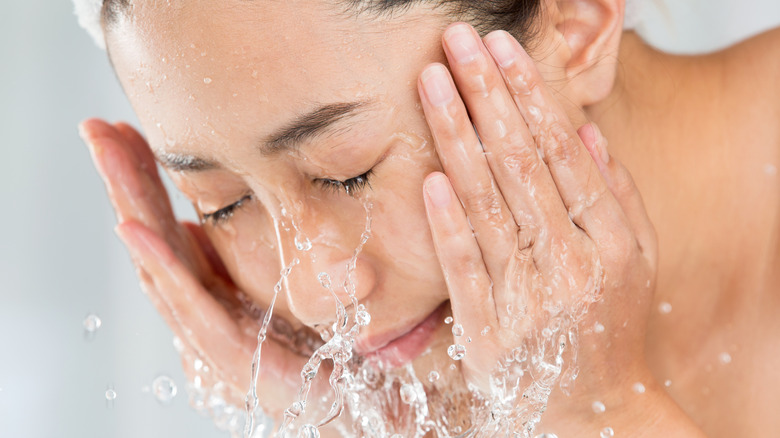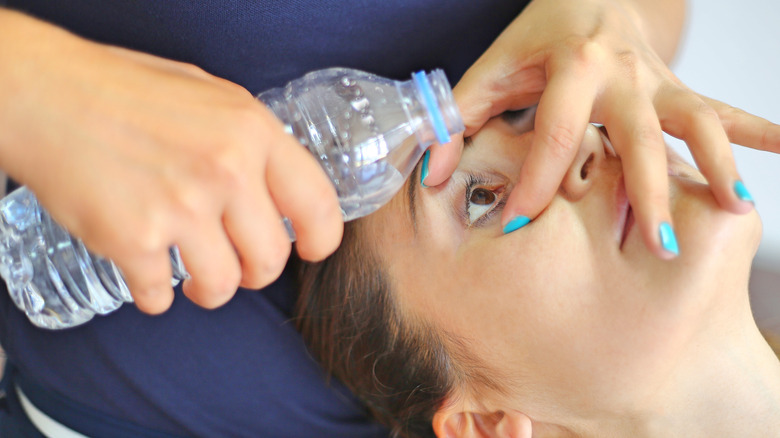The First Thing You Should Do If You Get Soap In Your Eye
Getting soap in your eyes hurts. It's an unfortunate fact of life, one that has spawned a whole market of tear-free bathing products for kids. But, as Dr. Richard Bersinger writes for the American Academy of Ophthalmology, getting soap in your eyes is probably one of the most common eye-irritating events a person can endure. Whether it's in the shower or soap left over after you wash your hands, that sting is all too familiar, and it's never fun.
With the increased use of hand sanitizer, it's becoming even more familiar. However, Dr. Bersinger states that soap is extensively tested to ensure it is non-toxic, while hand sanitizer is alcohol-based. Dr. Russel Lazarus explains for the Optometrists Network that alcohol-based hand sanitizer poses more of a risk to the eyes and can actually lead to vision loss if not treated properly. The best way to rinse hand sanitizer from your eyes is to run the affected eye under a steady stream of water, but what should you do if soap is the culprit?
It's important to rinse the eye well
Dr. Russel Lazarus explains how to rinse hand sanitizer from a person's eyes, but he prefaces it with a strong warning (via the Optometrists Network). If you continue to experience pain after the soap or hand sanitizer is rinsed from your eyes or you experience any changes in vision, an eye doctor should be contacted immediately. In these instances, the situation is considered an eye emergency in need of immediate professional treatment.
The first step, however, is to avoid rubbing the affected eye. Alcohol-based hand sanitizers can seriously damage both the cornea and the conjunctiva, which cover different parts of our eyes. You may already be experiencing pain and light sensitivity, and rubbing your eye can potentially make the situation worse.
Removing hand sanitizer or soap requires at least 10 minutes of rinsing the eye with warm water. Dr. Lazarus recommends putting your face under a continuous stream of gentle tap water. If the other eye has not been affected, it should be tightly shut to avoid splashes and contamination. If pain persists or vision has changed, you may want to seek medical attention.


